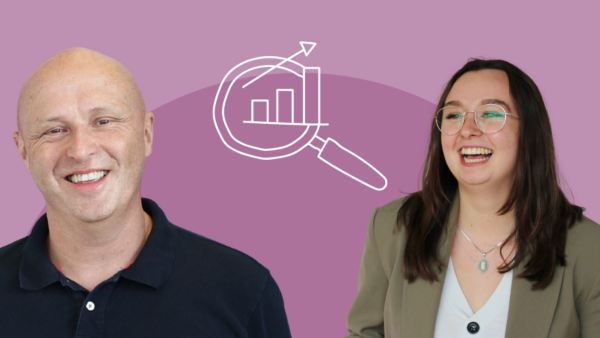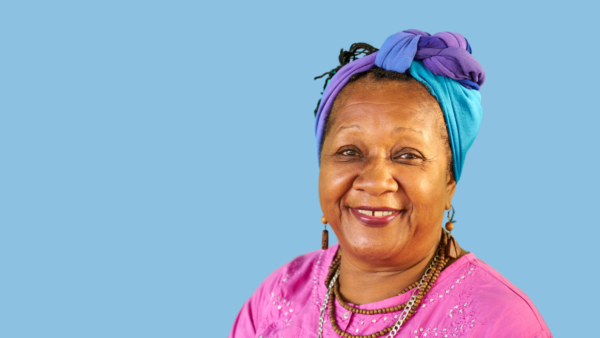In today’s podcast, I want to talk about a popular topic – how to own your own development, in a work context. In some organisations, there will be a formal process for putting together your personal development plan. In others, there will be less of a formal process and more of an informal ‘development by request’ process, where you’ll need to put together your reasoning behind requesting a particular piece of development. So how do you take control of your development? The strengths way?
I’m the strengths guy, Dr Paul Brewerton, and my podcasts come to you each week on a Monday morning in time to catch you on your way in to work, to set you up well for the week ahead. I weave the strengths approach into almost all my podcasts and today’s definitely has that flavour. So let’s talk about owning your development.
So a couple of things that I’ve noticed in over 20 years of working in, and for, organisations: firstly, ‘development‘ and development plans, even today, tend to focus first on remedial actions to make someone better in an area where they are underperforming, underskilled or underconfident.
Now there is no intrinsic problem with this (although someone’s energy to take on that kinds of development may be limited) if the development needs identified are absolutely critical to the person’s role. However, because we live in a world biased towards the negative and most of us still wrongly believe that by addressing and improving the worst in our performance, we will become successful (when actually the best we can hope for is preventing failure), more often than not, people’s personal development plans will continue to focus in on less and less role-critical areas for improvement once the big ticket, boat-sinking, problem areas have been addressed.
So I want to talk today about how we can re-balance that tendency towards the negative when it comes to development.

The second thing I wanted to mention is that from where I’m standing, people still seem to expect other people to come up with suggestions for their development and for others (their manager, HR, or the magical career path goblin) to manage their careers for them somehow.
Well I’m here to make a suggestion that there ain’t no one in the world better than you at working out what you need in order to get the role and the career that you want. And if you wait for others to present their version of what they think is right for you, that’s going to be driven by their agendas, seen through their eyes, and may well not be what you were expecting, wanting, or needing, at all. So how then to take control of your development and career and own them?
1. Make sure that you know your greatest strength areas
Consider how you can do more with these by building skills and knowledge around areas of natural energy and strength. And make sure that this makes it into your development plan, because it will probably represent your greatest opportunity for growth and performance improvement. Let’s say I’m naturally persuasive, that I have a strength in that area. And let’s say that influencing other people is a key element of my role. In this case, we have two things aligning that tell me I might be onto something development-wise: my role needs me to influence and I have a natural energy for, an inclination towards, influencing and persuading others.
So the bit that might be missing, where development can help…is that my skillset around influencing may not be that well developed. I might be a bit of a one-trick persuader pony and if I can’t persuade you with my persuasiveness, I’ll just turn that strength up and try and do it again, quite possibly unsuccessfully. But if I choose to build on my strength be developing new skills in that area, I can take that strength to a whole new level of effectiveness.
So I could choose to get some development in conflict resolution say, or rapport-building, or improving my listening or empathy skills, to make me even more of a devastatingly effective influencer. And that’s an example of a strengths-based approach to development: align the needs of the role with your natural strengths and then seek skills development that can help boost that energy.
2. When you think about your development, think 70/20/10
There’s some pretty solid research which tells us that around 70% of our development comes best from direct experience in role…so look for opportunities to skill-build in projects already available or within your role as it is today. 20% of our development can be helped by involving others – experts who we can observe or consult with who will be able to give us knowledge, or feedback on our options for development. And only 10% of our learning, for us to be most effective, so the research says, should come from formal development and training, like classroom-based or online courses.
Therefore, you might want to think practical application first as the best way to build, and own, your development.
3. Where your development goals are less negotiable, find ways you can use your strengths to achieve those goals
There are going to be occasions where you’re going to need to include on your development plan something that doesn’t look particularly interesting or energising, because that’s just how life is, right? But there are ways that you can use your strengths to get more from even the dullest or least attractive development goal. Personally, I find myself drained by logistical planning and efficiency – it hems me in man! I know, that’s my stuff, and I have huge respect for people with strength in those areas, so don’t get me wrong, I really value it, I just find it hard and draining. But anyway, say I need to include a development goal of becoming more efficient in my time management say, because that’s what my manager said and I know they’re probably right.
So how can I make that less unappealing and more energising? I bring in my strengths – collaboration to get a buddy, ideally skilled in that area, to help me get better and improve as much as I can by showing me and coaching me in how they do it. Empathy to help me understand why other people feel it’s so important that I’m on time and can organise my day so that I don’t miss commitments. So now I’m getting interested! Faced with a development goal of improving my organisation and time management skills, I would probably feel pretty stuck. Bringing my strengths into the picture can turn that around.
4. Take control of your career
Be clear with your manager and with yourself where you want to take your career and role and then…make it happen. Make it easy for your manager by taking the conversation to them and they will be grateful to you, as most of the time, managers don’t know how to broach the topic of career development, or how to properly structure a career conversation and so, all too often, the important unsaid things stay unsaid for too long. Now taking control of your career is easier said than done and is a bigger topic than I can do justice to here, but at Season 2, episode 4, I cover in more depth how to how to do it. I believe that in summary, I say things like work out your true north, take control, choose life and face your fears, so if that sounds interesting, go take a listen.
So 4 ideas for owning your development today –
- 1. stretch your greatest strengths
- 2. think 70/20/10
- 3. When you can’t stretch your strengths, use your strengths, and
- 4. take hold of your career by the scruff of the neck and make it what you want.
That’s it for today, it’s always a pleasure. If you liked, please subscribe and see you next time.
This blog is also available as a podcast along with some other incredible extra content. Check it out on Soundcloud, Spotify, Acast.












